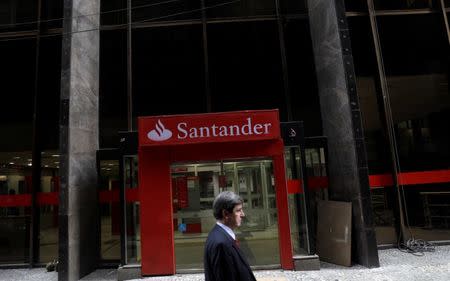Foreign banks carved out of Senate regulatory relief bill
By Pete Schroeder
WASHINGTON (Reuters) - Foreign banks have been excluded from a key provision relaxing oversight of small and mid-sized lenders under a modified version of a U.S. Senate bill that aims to ease rules introduced following the 2007-2009 global financial crisis.
The amended version of the bill, released on Wednesday, includes a new section that explicitly preserves the Federal Reserve's ability to strictly regulate the U.S. operations of large foreign banks like Deutsche Bank <DBKGn.DE> and Banco Santander <SAN.MC> alongside the country's largest institutions.
The last-minute change will likely fuel discontent among foreign banks operating in the United States, which have long complained they are not given equal treatment to their domestic peers in regulatory matters.
The Senate is currently considering the bipartisan bill, authored by Senate Banking Committee Chairman Mike Crapo, that would mark the first rewrite of the 2010 Dodd-Frank Act. It is expected to be passed by the Senate this week.
The new language aims to assuage worries among Democratic lawmakers that massive foreign banks could benefit from a provision of the bill intended to benefit smaller banks.
The provision would raise the level at which banks are considered systemically risky and subject to stricter oversight to $250 billion from $50 billion.
Some lawmakers were concerned that the language would allow foreign banks with more than $250 billion in global assets to seek relief because their onshore U.S. assets may fall below that threshold.
They said it may prompt foreign banks to pressure the Fed, which applies the legislation on a day-to-day basis, to go easy on them or even expose the regulator to legal challenges against stricter oversight.
The amended bill says the higher threshold should not apply to any foreign banking organizations with global assets above $100 billion or limit the Fed's ability to regulate those banks as it has in the past.
Other changes include provisions that seek to boost company capital raising as well as several protections for borrowers of student loans.
Some of the new provisions, such as the capital formation changes, aim to appease lawmakers in the House of Representatives, who still need to approve the bill for it to become law.
(Reporting by Pete Schroeder; Editing by Michelle Price and Peter Cooney)



